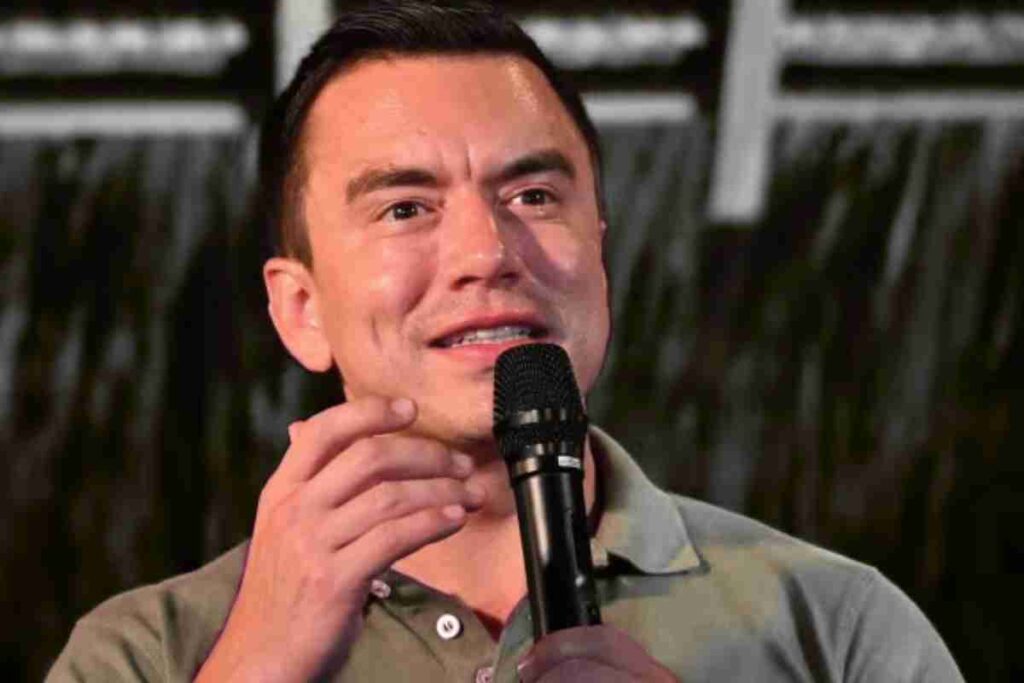Ecuador’s President Daniel Noboa Wins Re-Election in Challenging Times
Ecuador has once again placed its trust in Daniel Noboa, who secured re-election as the country’s president in a closely contested run-off election. With his victory, Noboa now has a full four-year mandate to lead the nation through turbulent times marked by escalating violence, economic challenges, and political polarization. This article will break down the key factors behind his triumph, his ongoing policies, and the challenges ahead.
Who is Daniel Noboa?
Daniel Noboa, at just 37 years old, has already left a significant mark on Ecuadorian politics. Coming from one of Ecuador’s wealthiest families, Noboa entered the political scene with a mixture of privilege, ambition, and a promise of reform. His political career truly gained momentum in November 2023, when he rose to power in a snap election underscored by national insecurity.
Noboa brands himself as a conservative yet pragmatic leader, aligning closely with business and security-minded communities. His tenure so far has been defined by efforts to tackle the dual crises of violent crime and economic instability. His recent re-election victory cements his place as a young but powerful figure in South American politics.
A “Historic” Victory Amidst Tensions
Noboa’s re-election was not without its drama. Winning with 56% of the vote, he defeated leftist challenger Luisa González, who contested the results and alleged electoral fraud without providing evidence. González’s connections to former president Rafael Correa, a divisive figure deeply admired by some and criticized by others, shaped the narrative of the election.
González’s refusal to concede has added to Ecuador’s already palpable political polarization. Her claims of fraud have energized her supporters, many of whom are nostalgic for Correa’s era, marked by reduced poverty but also allegations of corruption and authoritarianism.
For Noboa, the victory is a mandate to continue the policies he initiated during his first term while addressing the concerns of a divided electorate.
Key Policies in Focus
1. Battling Violence and Drug Cartels
Ecuador’s growing reputation as one of the world’s most violent countries has placed security at the top of Noboa’s agenda. Homicides have reached record levels, driven by escalating turf wars among local gangs and transnational drug cartels.
Noboa’s “iron fist” approach to tackling crime includes militarizing city streets and prisons, constructing new maximum-security detention facilities, and declaring a state of emergency to combat drug trafficking. He has also sought international support, proposing the controversial return of foreign military bases to Ecuador. Despite these measures, homicides remain alarmingly high, and Noboa faces mounting pressure to prove that his security strategies are effective.
2. Boosting the Economy
Economic hardships, compounded by droughts causing power blackouts, have tested Noboa’s leadership. His response has included investments in renewable energy to diversify the country’s energy sources, which currently depend heavily on hydropower. Noboa has also aimed to strengthen Ecuador’s trade partnerships, particularly with the United States.
His economic pitch largely focuses on job creation, echoing a youthful and dynamic attitude that resonates with Ecuador’s younger voters. His slick social media campaigns and promises of infrastructure development have helped cement his connection with this demographic.
3. Political Challenges
Despite winning the election, Noboa will govern a nation deeply divided along ideological lines. Luisa González’s supporters, frustrated and disillusioned, present a significant challenge to his efforts to unify the country. Any missteps in policy implementation could quickly escalate unrest and further polarize the public.
4. Tackling Corruption
Corruption remains a pervasive issue in Ecuador, and Noboa has pledged to tackle it head-on. He has signaled plans to enhance transparency in government and strengthen anti-corruption measures, but fulfilling these promises will require overcoming both institutional inertia and entrenched power structures.
5. Strengthening International Relations
Noboa has emphasized the importance of boosting Ecuador’s global relationships, particularly with the U.S. His administration has brokered security agreements and pushed for policies intended to align Ecuador more closely with major international partners. His efforts to impose tariffs on Mexican imports and repeal amnesty for undocumented Venezuelan migrants highlight his approach to protecting national interests while engaging with the global community.
Challenges Ahead
The road ahead for Daniel Noboa is fraught with challenges. Among his immediate priorities is proving that his security measures are yielding results. With crime rates still high, public patience is wearing thin, and any perceived stagnation could erode his political capital.
Economically, Noboa must address unemployment and the concerns of an energy-dependent nation dealing with the effects of climate change. The droughts that have caused blackouts underscore Ecuador’s vulnerabilities and emphasize the importance of diversifying its energy base.
Additionally, Noboa must find ways to bring a fractured populace together. The lingering influence of Rafael Correa and the discontent among González’s supporters cast a shadow over Ecuador’s political landscape. Without tangible progress on his promises, unrest and social tensions are likely to grow.
A Vision for the Future
Despite the daunting obstacles, Noboa’s re-election is a clear signal from Ecuadorians that they are willing to place their trust in his vision for the nation. His youth, determination, and alignment with global trends present an opportunity for Ecuador to tackle its pressing problems with innovative solutions.
Whether he can deliver on his promises and unify Ecuador remains to be seen, but one thing is certain—Daniel Noboa’s presidency will shape the next chapter of the country’s history.

